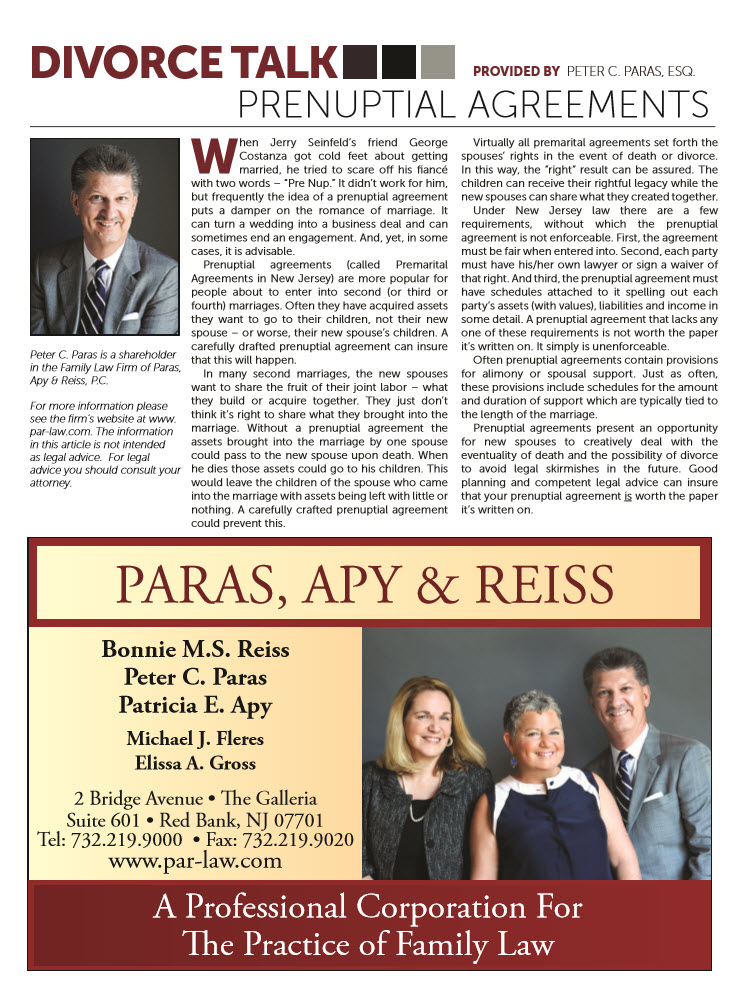When Jerry Seinfeld’s friend George Costanza got cold feet about getting married, he tried to scare off his fiancé with two words – “Pre Nup.” It didn’t work for him, but frequently the idea of a prenuptial agreement puts a damper on the romance of marriage. It can turn a wedding into a business deal and can sometimes end an engagement. And, yet, in some cases, it is advisable.
Prenuptial agreements (called Premarital Agreements in New Jersey) are more popular for people about to enter into second (or third or fourth) marriages. Often they have acquired assets they want to go to their children, not their new spouse – or worse, their new spouse’s children. A carefully drafted prenuptial agreement can insure that this will happen.
In many second marriages, the new spouses want to share the fruit of their joint labor – what they build or acquire together. They just don’t think it’s right to share what they brought into the marriage. Without a prenuptial agreement the assets brought into the marriage by one spouse could pass to the new spouse upon death. When he dies those assets could go to his children. This would leave the children of the spouse who came into the marriage with assets being left with little or nothing. A carefully crafted prenuptial agreement could prevent this.
Virtually all premarital agreements set forth the spouses’ rights in the event of death or divorce. In this way, the “right” result can be assured. The children can receive their rightful legacy while the new spouses can share what they created together.
Under New Jersey law there are a few requirements, without which the prenuptial agreement is not enforceable. First, the agreement must be fair when entered into. Second, each party must have his/her own lawyer or sign a waiver of that right. And third, the prenuptial agreement must have schedules attached to it spelling out each party’s assets (with values), liabilities and income in some detail. A prenuptial agreement that lacks any one of these requirements is not worth the paper it’s written on. It simply is unenforceable.
Often prenuptial agreements contain provisions for alimony or spousal support. Just as often, these provisions include schedules for the amount and duration of support which are typically tied to the length of the marriage.
Prenuptial agreements present an opportunity for new spouses to creatively deal with the eventuality of death and the possibility of divorce to avoid legal skirmishes in the future. Good planning and competent legal advice can insure that your prenuptial agreement is worth the paper it’s written on.

